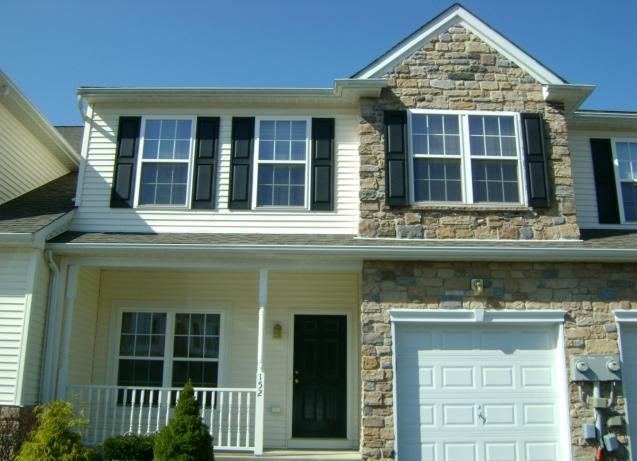
04 Jun The FHA Anti-flipping Rule and What It Means for Flippers and Buyers
If you are buying, fixing, and flipping single-family houses – particularly starter homes – then you need to know about the Prohibition of Property Flipping Rule created by the Department of Housing and Urban Development (HUD) to prevent egregious predatory flips within the Federal Housing Administration (FHA) mortgage insurance programs. I will first explain the rule, then the exceptions to the rule, and finally the strategy flippers and homebuyers can take.
The FHA anti-flipping rule was instituted on June 2, 2003 and includes the following stipulations when the buyer is obtaining an FHA loan:
- Only owners of record can sell properties. This eliminates the potential for wholesalers, who are middlemen who never buy the property yet enter into a purchase contract with the intent of selling the rights to their contract to the eventual buyer.
- Any re-sale of a property may not occur 90 or fewer days from the last sale. In other words, the investor must own the house for 91 days before he or she can sell it to an FHA buyer. Additionally, the purchase contract with the FHA buyer has to be dated at least 91 days from the day that the seller purchased it.
- If the re-sale date is between 91 and 180 days following the acquisition by the seller, a second appraisal must be made by another appraiser if the resale price is 100 percent or more over the price paid by the seller when the property was purchased. The buyer cannot pay for the second appraisal. For example, if the investor buys the house for $75,000 and then wishes to sell it for $150,000 or more to an FHA buyer, the investor should be prepared to pay for a second appraisal.
- If the re-sale date is between 90 days and the end of the 12th month from the date of acquisition by the seller, then FHA reserves the right to request additional documentation. This additional documentation should support the re-sale value if the sale price is 5 percent or more than the lowest sale price of the property in the past 12 months. Typically it is a second appraisal. Once I had to provide receipts of my renovation materials and invoices from contractors.
In the midst of the housing crisis after The Great Recession, FHA temporarily relaxed the anti-flip rule. However, on January 1, 2015, it was fully reinstated.
Here is an example of a flip project I did:
- Purchased 152 Willow on July 21st for $128,000.
- $15,000 renovation over a stress-free 75 day period.
- Home stager brought in on day 80.
- Listing agent took photos on day 87.
- House listed for $200,000 on October 26th.
- Multiple offers received. The best offer was for $201,000 from an FHA buyer, with a $2,550 seller credit toward closing costs. I accepted it. I did have to submit my receipts for renovation materials and contractor work. I also paid for a second appraisal. The loan was approved, and the settlement occurred as planned.
Exceptions for a Buyer Using an FHA Loan to Purchase in Less than 90 Days:
- Properties acquired by an employer or relocation company.
- Sales of single family homes by U.S. government agencies under their programs.
- Sales of HUD-owned houses that were foreclosed.
- Non-profits that buy HUD-owned houses.
- State and federally charged financial institutions, government sponsored entities, and local and state government agencies.
- Properties in a Federal Disaster Area.
Keep in mind that if a flipper buys any of the above properties, they must own the property for at least 91 days before they can sell to an FHA buyer.
Other loans, like Fannie Mae, Freddie Mac, USDA, VA, and conventional loans do not have any anti-flipping provisions.
If you are an FHA buyer who sees a house owned for less than 90 days and you want to ensure you can buy it, one technique is to work with your Realtor® or lawyer to put it under contract right away so the seller cannot sell to someone else. At the 91 day mark, terminate the original contract and then sign a new purchase contract with the seller. Keep in mind that the seller could mutually terminate the original contract with you and then refuse to sign a new one.
If you are a flipper selling a house that is likely to appeal to the pool of FHA buyers, it may be prudent to wait the requisite 91 days before putting the house on the market. I personally prefer this course of action. Some flippers I know do not wish to wait the 91 days because of the carrying costs, which can add up. If you do not wait the 91 days, your pool of buyers will be smaller and perhaps you will have less competition from buyers. I suggest you examine your numbers and the market conditions to determine whether to wait 91 days before putting the house on the market.
Tai DeSa is a graduate of The Wharton School of the University of Pennsylvania. He became a full-time real estate investor in 2004 after serving in the U.S. Navy. Tai has made colossal mistakes in investing (and learned some things along the way). He has owned over 200 properties with various investment partners, and he has been involved in over 200 more transactions as a real estate broker. Tai and his wife Amira enjoy hunting for investment properties. Contact Tai if you need some consultation on real estate investing. Tai may be available for coaching and speaking engagements on a variety of real estate topics. Send an email to tai@investandtransform.com. Tai is passionate about helping investors make money and avoid mistakes.






No Comments